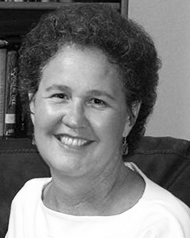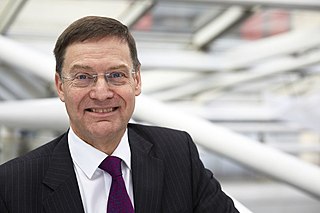Education reform is the name given to the goal of changing public education. The meaning and education methods have changed through debates over what content or experiences result in an educated individual or an educated society. Historically, the motivations for reform have not reflected the current needs of society. A consistent theme of reform includes the idea that large systematic changes to educational standards will produce social returns in citizens' health, wealth, and well-being.

Jyväskylä is a city and municipality in Finland in the western part of the Finnish Lakeland. It is located about 150 km north-east from Tampere, the third largest city in Finland; and about 270 km north from Helsinki, the capital of Finland. The Jyväskylä sub-region includes Jyväskylä, Hankasalmi, Laukaa, Petäjävesi, Toivakka, and Uurainen. Other border municipalities of Jyväskylä are Joutsa, Jämsä and Luhanka.

The University of Jyväskylä is a research university in Jyväskylä, Finland. It has its origins in the first Finnish-speaking Teacher Training College, founded in 1863. Around 14,000 students are currently enrolled in the degree programs of the university.

The educational system in Finland consists of daycare programmes, a one-year "preschool", and an 11-year compulsory basic comprehensive school. Nowadays secondary general academic and vocational education, higher education and adult education are compulsory.
The Doctor of Education is a research or professional doctoral degree that focuses on the field of education. It prepares the holder for academic, research, administrative, clinical, or professional positions in educational, civil, private organizations, or public institutions. Considerable differences exist in structure, content and aims between regions. In the US, for instance, the EdD usually is a professional doctorate for working or learning professionals and has a large taught component with a smaller thesis, comparable to for example a DSW or DPH, whereas in the UK and Canada, the Ed.D is a full research doctorate with research and profession related courses but ultimately awarded for the thesis resulting from original research, that way aligning more with a Ph.D.

The Programme for International Student Assessment (PISA) is a worldwide study by the Organisation for Economic Co-operation and Development (OECD) in member and non-member nations intended to evaluate educational systems by measuring 15-year-old school pupils' scholastic performance on mathematics, science, and reading. It was first performed in 2000 and then repeated every three years. Its aim is to provide comparable data with a view to enabling countries to improve their education policies and outcomes. It measures problem solving and cognition.
Education policy consists of the principles and policy decisions that influence the field of education, as well as the collection of laws and rules that govern the operation of education systems. Education governance may be shared between the local, state, and federal government at varying levels. Some analysts see education policy in terms of social engineering.

Fernando M. Reimers is the Ford Foundation Professor of the Practice in International Education and Director of the Global Education Innovation Initiative at the Harvard Graduate School of Education. He is interested in advancing understanding of the ways schools can empower students to participate civically and economically, and to help achieve the UN Sustainable Development Goals. He served on UNESCO's Commission on the Futures of Education that authored the report Reimagining Our Futures Together. A New Social Contract for Education.

Linda Darling-Hammond is an American academic who is the Charles E. Ducommun Professor of Education Emeritus at the Stanford Graduate School of Education. She was also the President and CEO of the Learning Policy Institute. She is author or editor of more than 25 books and more than 500 articles on education policy and practice. Her work focuses on school restructuring, teacher education, and educational equity. She was education advisor to Barack Obama's 2008 presidential campaign and was reportedly among candidates for United States Secretary of Education in the Obama administration.
Sandra Stotsky is Professor emerita in the Department of Education Reform at the University of Arkansas, and held the 21st Century Chair in Teacher Quality. Her research ranges from teacher licensure tests, e.g., (1), coherence in the literature and reading curriculum, e.g., (2), and academic achievement in single-sex classrooms, e.g., (3) to critiques of Common Core’s standards in English language arts, e.g., (4) mathematics.(5), and US History and civic education (6), and other aspects of the Common Core project, e.g., (7), and to reviews of books in education, e.g., (8) She is an advocate of standards-based reform and strong academic standards and assessments for students and teachers.
Educational leadership is the process of enlisting and guiding the talents and energies of teachers, students, and parents toward achieving common educational aims. This term is often used synonymously with school leadership in the United States and has supplanted educational management in the United Kingdom. Several universities in the United States offer graduate degrees in educational leadership.
Dwight W. Allen was a professor of education, eminent scholar, and lifelong education reformist. He served as a professor and Director of Teacher Education at his alma mater, the Stanford Graduate School of Education from 1959 to 1967. He was Dean of the College of Education, University of Massachusetts, Amherst, from 1968 to 1975. In 1978, Allen became a Professor of Education and Eminent Scholar of Educational Reform at Old Dominion University in Virginia. Allen retired from Old Dominion University in July 2008.

Rainer Mahlamäki is a Finnish architect, president of the Finnish Association of Architects (SAFA) from 2007 to 2011, Professor of Contemporary Architecture at the University of Oulu, and joint partner with Ilmari Lahdelma of the Helsinki-based architecture firm Lahdelma & Mahlamäki Architects, one of the most prolific such firms in Finland. A significant part of their work started as entries in architectural competitions, in which they have received 35 first prizes.
Arlene C. Ackerman was an American educator who served as superintendent of the District of Columbia Public Schools, San Francisco Unified School District, and Philadelphia Public Schools.
Helsinki Challenge is a science-based competition and idea accelerator which brings together the academic community and society at large to solve the world's grand challenges in cooperation. The competition goal is not only to create new scientific information, but to influence society.

Professor Sir Chris Husbands is a British academic, educationist, university leader and public servant, who has been Vice-Chancellor of Sheffield Hallam University since January 2016.

Christopher 'Chris' Dede, is an educational researcher and the Timothy E. Wirth Professor in Learning Technologies at the Harvard Graduate School of Education. His expertise includes emerging technologies, policy and leadership in education. He has been noted as one of the main contributors to the emergence of educational technology in the 2000s and 2010s and has received awards for his research from the American Educational Research Association, the Association for Teacher Educators, and the Association for Educational Communications and Technology.

Jóhanna Einarsdóttir is a professor of Early Childhood Education at the University of Iceland.
Vuokko Hirvonen is an author and professor emeritus of Sámi literature and school research at Sámi University of Applied Sciences. She has written extensively about Sámi women's literature and Sámi teacher education.
Pentti E. Hakkarainen was a Lithuanian educational psychologist of Finnish origin.










